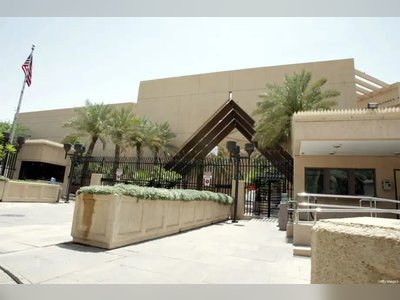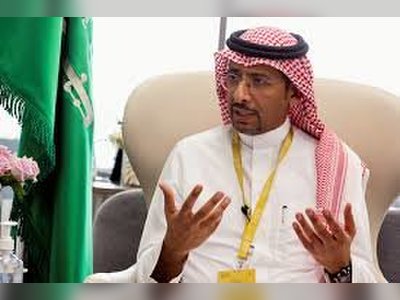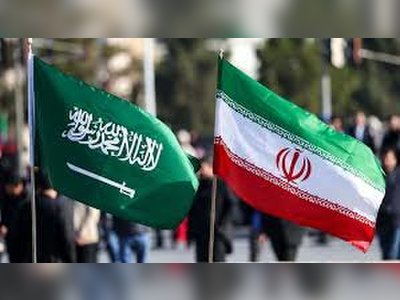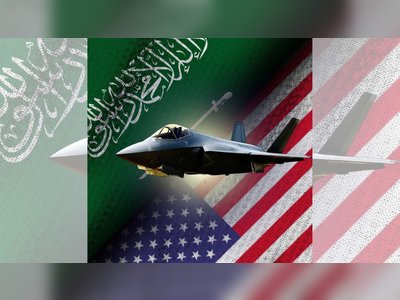
Iraq Faces Electricity Crisis Amid U.S. Ban on Iranian Energy Imports
Iraqi officials warn of severe electricity shortages as U.S. revokes exemption for Iranian gas imports, crucial for power generation.
Three Iraqi energy officials report that Iraq lacks immediate alternatives to compensate for the electricity imported from Iran, noting that this shortage could hinder the supply of sufficient electricity to meet domestic consumption, particularly during the summer months.
A senior official from the Ministry of Electricity indicated that the government has begun implementing urgent measures to mitigate the impact of the U.S. decision on electricity supplies in Iraq.
This situation arises after the United States on Saturday rescinded an exemption allowing Iraq to purchase electricity from Iran, part of the 'maximum pressure' campaign initiated by President Trump to deprive Tehran of financial revenues.
Iraq heavily relies on Iranian gas to operate its power stations, particularly in the south, rendering the country vulnerable to any fluctuations in gas supplies from Iran.
Iran supplies Iraq with approximately 50 million cubic meters of gas daily, covering around one-third of the country’s needs, which is sufficient to generate approximately 6,000 megawatts of electricity.
Iraqi officials estimate that the country requires between 30,000 to 40,000 megawatts to meet total electricity demand, especially during peak consumption times.
U.S. Chargé d'Affaires in Baghdad, Daniel Rubinstein, stated that Iraq's import of natural gas from Iran remains outside the U.S. sanctions framework.
According to a statement from the media office of the head of the Iraqi Parliament's Finance Committee, Atwan Al-Attwani, during a meeting with Rubinstein in Baghdad, the two sides discussed the U.S. decision to cancel the exemption allowing Iraq to import natural gas from Iran for electricity generation.
Al-Attwani expressed concern over the expiration of the exemption for Iraq's natural gas imports from Iran.
He warned that halting Iraq's imports from Iran would lead to the collapse of the national electricity grid, particularly in the summer months, with catastrophic consequences for the population.
Rubinstein reaffirmed that Iraq's import of Iranian natural gas is currently outside the sanctions system and emphasized efforts to find lasting solutions that serve the interests of both Baghdad and Washington.
The U.S. administration announced the cancellation of the exemption allowing Iraq to pay Iran for imported natural gas for power generation.
The Iraqi government spokesperson, Bassim Al-Awadi, confirmed that Iraq had not officially been informed of the end of exemptions on Iranian gas imports and noted that the government had prepared scenarios to address potential developments in this regard.
Advisers to the Iraqi Prime Minister on foreign affairs indicated that the end of the U.S. sanctions exemption allowing Iraq to purchase Iranian energy presents temporary operational challenges.
They stated that the government is working diligently to find alternatives to continue electricity supplies and mitigate potential disruptions.
They asserted that enhancing energy security remains a national priority, with ongoing efforts to improve domestic production, network efficiency, and investment in modern technologies.
In response to the U.S. decision, Iran condemned the revocation of the exemption granted to Iraq for importing electricity, labeling it "illegal." An Iranian foreign ministry spokesperson stated that such statements acknowledge a breach of law and recognize crimes against humanity, maintaining that the unilateral U.S. sanctions against the Iranian nation are unjustified and unfounded.
In addition, sources noted that the U.S. used its review of the exemptions as a means to pressure Baghdad to allow crude oil exports from the Kurdistan region of Iraq via Turkey, with the goal of enhancing supplies in the global market and stabilizing prices, thus providing Washington with a broader scope to continue its efforts to restrict Iranian oil exports.
U.S. officials claimed that the energy transition in Iraq provides opportunities for American companies that are the most experienced in the world in enhancing the efficiency of power plants, improving networks, and developing reliable electrical interconnections with partners.
They downplayed the impact of Iranian electricity imports on Iraq's power grid, indicating that in 2023, Iranian electricity imports constituted only about 4% of Iraq’s total electricity consumption.
A senior official from the Ministry of Electricity indicated that the government has begun implementing urgent measures to mitigate the impact of the U.S. decision on electricity supplies in Iraq.
This situation arises after the United States on Saturday rescinded an exemption allowing Iraq to purchase electricity from Iran, part of the 'maximum pressure' campaign initiated by President Trump to deprive Tehran of financial revenues.
Iraq heavily relies on Iranian gas to operate its power stations, particularly in the south, rendering the country vulnerable to any fluctuations in gas supplies from Iran.
Iran supplies Iraq with approximately 50 million cubic meters of gas daily, covering around one-third of the country’s needs, which is sufficient to generate approximately 6,000 megawatts of electricity.
Iraqi officials estimate that the country requires between 30,000 to 40,000 megawatts to meet total electricity demand, especially during peak consumption times.
U.S. Chargé d'Affaires in Baghdad, Daniel Rubinstein, stated that Iraq's import of natural gas from Iran remains outside the U.S. sanctions framework.
According to a statement from the media office of the head of the Iraqi Parliament's Finance Committee, Atwan Al-Attwani, during a meeting with Rubinstein in Baghdad, the two sides discussed the U.S. decision to cancel the exemption allowing Iraq to import natural gas from Iran for electricity generation.
Al-Attwani expressed concern over the expiration of the exemption for Iraq's natural gas imports from Iran.
He warned that halting Iraq's imports from Iran would lead to the collapse of the national electricity grid, particularly in the summer months, with catastrophic consequences for the population.
Rubinstein reaffirmed that Iraq's import of Iranian natural gas is currently outside the sanctions system and emphasized efforts to find lasting solutions that serve the interests of both Baghdad and Washington.
The U.S. administration announced the cancellation of the exemption allowing Iraq to pay Iran for imported natural gas for power generation.
The Iraqi government spokesperson, Bassim Al-Awadi, confirmed that Iraq had not officially been informed of the end of exemptions on Iranian gas imports and noted that the government had prepared scenarios to address potential developments in this regard.
Advisers to the Iraqi Prime Minister on foreign affairs indicated that the end of the U.S. sanctions exemption allowing Iraq to purchase Iranian energy presents temporary operational challenges.
They stated that the government is working diligently to find alternatives to continue electricity supplies and mitigate potential disruptions.
They asserted that enhancing energy security remains a national priority, with ongoing efforts to improve domestic production, network efficiency, and investment in modern technologies.
In response to the U.S. decision, Iran condemned the revocation of the exemption granted to Iraq for importing electricity, labeling it "illegal." An Iranian foreign ministry spokesperson stated that such statements acknowledge a breach of law and recognize crimes against humanity, maintaining that the unilateral U.S. sanctions against the Iranian nation are unjustified and unfounded.
In addition, sources noted that the U.S. used its review of the exemptions as a means to pressure Baghdad to allow crude oil exports from the Kurdistan region of Iraq via Turkey, with the goal of enhancing supplies in the global market and stabilizing prices, thus providing Washington with a broader scope to continue its efforts to restrict Iranian oil exports.
U.S. officials claimed that the energy transition in Iraq provides opportunities for American companies that are the most experienced in the world in enhancing the efficiency of power plants, improving networks, and developing reliable electrical interconnections with partners.
They downplayed the impact of Iranian electricity imports on Iraq's power grid, indicating that in 2023, Iranian electricity imports constituted only about 4% of Iraq’s total electricity consumption.









